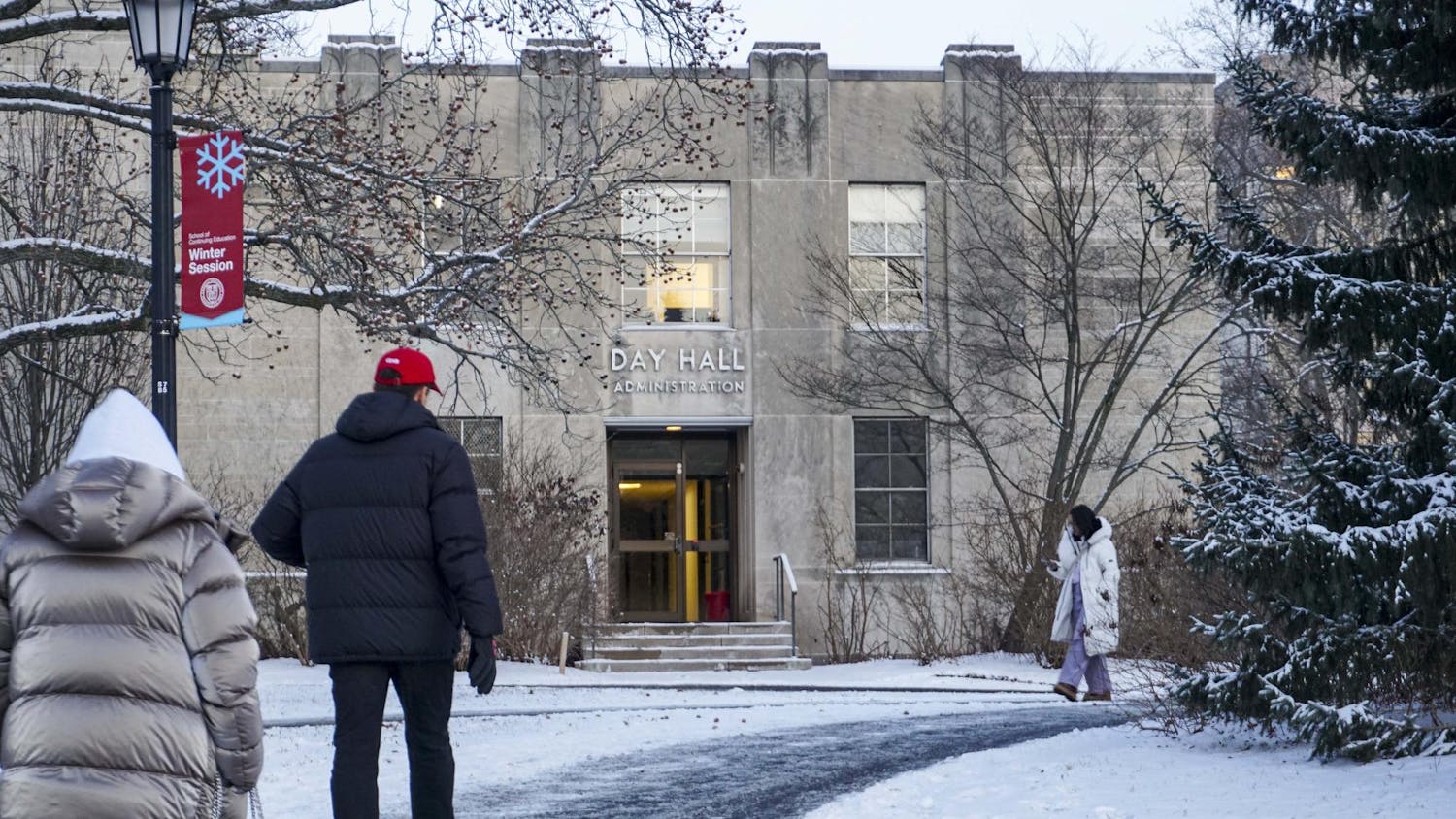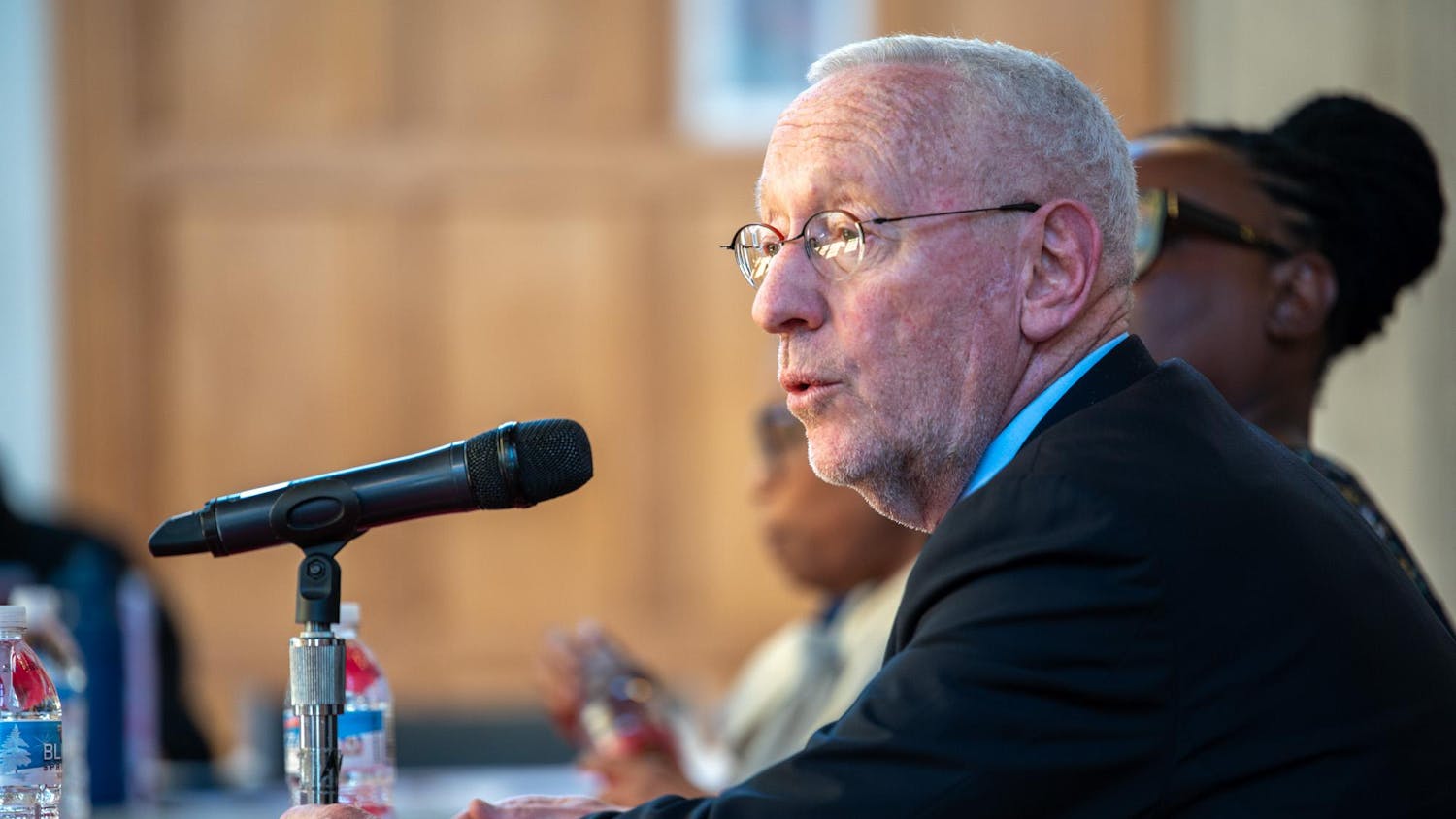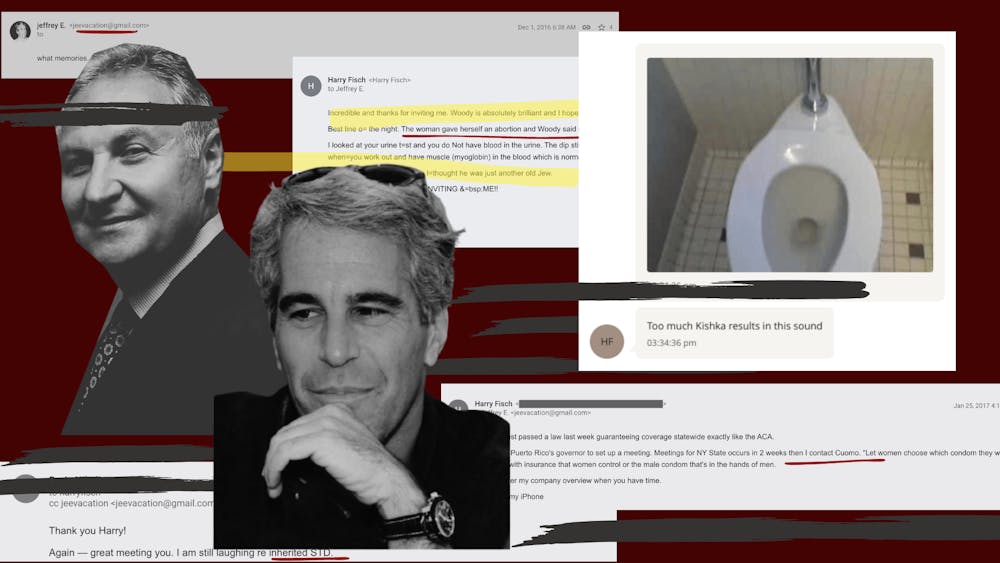Nearly eleven months ago, Gordon Caplan ’88 wired his first payment of $25,000 to a fake charity under the impression that his money would quietly bump his daughter’s ACT score. Today, a federal judge sentenced him to one month in prison, 250 hours of community service and a fine of $50,000 — less than the total $75,000 he shelled out last year.
The Cornell alumnus and now-disgraced international lawyer didn’t contest the case, pleading guilty to the charges of conspiracy to commit mail fraud and honest services mail fraud.
“I’m really sorry for my daughter, who I love more than anything in the world. She knew nothing about this. She hasn’t even applied to college yet,” Caplan said about his daughter, who is now in her senior year, the New Haven Register reported.
The former government major was the fourth parent sentenced, and the third sentenced by Judge Indira Talwani in the U.S. District Court in Boston. Other parents involved in the scandal that roiled the country last spring received skint prison time: Notably, actress Felicity Huffman was sentenced to only 14 days in prison; others received from one day of incarceration to four months.
Caplan was part of a scheme that snared 50 people exposed in the FBI’s “Operation Varsity Blues,” an undertaking that showed the role of wealth in various parts of the college admission process to elite universities.
Last June, William Singer, the mastermind behind a fraudulent company to transform wealth into acceptance letters, urged Caplan to petition for extended test-taking time for his daughter under the pretense of a learning disorder.
In July, transcripts showed Caplan and his wife discussing having Singer’s employees take classes under Caplan’s daughter’s name. In November, Caplan forked out the first payment, wiring $25,000 to the Key West Foundation. At the time, Caplan told Singer his daughter’s highest practice score was a 22.
He later shelled out another $50,000; in return, Singer had guaranteed an ACT score between 32 and 34. Court documents say Caplan asked Singer not to score his daughter higher than a 32.
The scheme was tidily presented to Caplan and his wife in phone calls throughout the transactions. Caplan has said that his daughter was completely in the dark, and he has publicly apologized to her repeatedly.
News of the fraud prompted swift reactions from universities.
Immediately following the publishing of the complaint, the University reviewed its athletic programs to check that students who weren’t playing were doing so for legitimate reasons.
“Within days of the news breaking, our Athletics administrators conducted a thorough review,” President Martha E. Pollack told The Sun last May. “We found that the few students who left did so for documented reasons.”
Pollack said that in the days following revelations about the breadth of the “appalling” college admissions scandal, Cornell’s own admissions department conducted a self-evaluation of its incoming and first-year student athletes.
The school found no irregularities, Pollack said, but noted that Cornell’s decentralized admissions would be reviewed.
The alumnus was interested in an athletic recruitment scheme for his daughter, too — even asking Singer for Cornell-specific information — but didn’t follow through on the request, according to the FBI complaint.
Caplan’s interest in Cornell was fiscal, as well. The Caplan Family Foundation Trust — headed by Gordon and Amy Caplan — donated generously to his alma mater, according to tax documents. In 2017, the Trust gave $100,000 to Cornell University, preceded by $140,000 in 2016, years during which Caplan’s daughter was likely in her first two years of high school.
These numbers were a significant jump from previous years. The Trust donated $15,000, $40,000 and $15,000 in 2013, 2014 and 2015, respectively. The University received at least $7,500 from the Trust before then, reports show.
Outside the courthouse Thursday, Caplan said he “fully respect[s] the decision of the court today.”
“I am deeply and profoundly sorry for being involved in this mess.”

Cornell’s Gordon Caplan ’88 Will Spend One Month Behind Bars After Spending $75,000 to Forge Daughter’s ACT Score
Reading time: about 4 minutes
Read More










